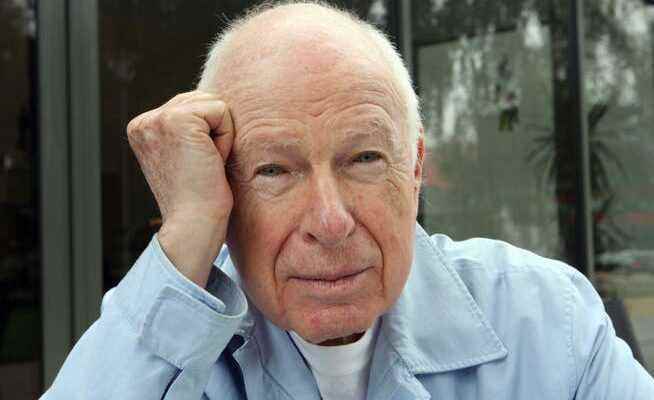The great theater director died on July 2nd. His work is still groundbreaking today.
Peter Brook, here on a recording from 2007.
He was an iconoclast of the stage, one of the most influential theater makers of our time. Peter Brook, who died in Paris on Saturday at the age of 97, loved simplification and experimentation. He cleared naturalistically imitating backdrops, reduced stage sets and props to the essentials. The essentials were the actors, the texts, and elegantly simplified or abstracted sets that would often stay in the minds of viewers years after the ephemeral theatrical event.
The “Times” noticed him at the age of 21
Brooks groundbreaked what was now a perfectly normal practice of casting roles with ethnically diverse actors. His comment that his cast lists were not “color-blind” but “rich in color” became famous. In his seven-decade career, it was always important to him to swim against the tide, as he said in an interview; he believed in the transformative power of theater. But he also made films such as “The Lord of the Flies” (1963) and staged operas. His production of the Indian “Mahabharata” epic became a television series in 1985.
Peter Brook’s work reached so many generations and remained so timeless and innovative that it was almost forgotten just how far back it went. He was born in London in 1925 as the son of Jewish immigrants from Latvia. Both parents were scientists, who gave him intellectual discernment and optimism about the future. Already at the age of 21 he attracted attention with his first productions of the London Times. It wasn’t long before he was performing Richard Strauss’ Salomé (with heavily criticized sets by Salvador Dalí) at the Royal Opera House in London. Or until Laurence Olivier played under his direction in 1955 in the hitherto largely neglected «Titus Andronicus» for the Royal Shakespeare Company. By 1958 the cerebral, quiet Brook had become co-director of the Royal Shakespeare Company, alongside the worldly Peter Hall, who said of Brook: “He doesn’t clutter his life with trifles.”
With Peter Brook died not only a seeker for truth and a forward pusher who pushed the boundaries of western stage practice, but also a great, almost obsessed Shakespearean director. His production of “A Midsummer Night’s Dream” from 1970 is still considered epochal today. The stage was a white cube equipped with steel wires. Trapezes and stilts served as props that gave the actors weightlessness: they floated, dreamlike.
Every empty space a bare stage
Brooks’ best productions – not all of his numerous directorial works were masterpieces – possessed an almost translucent lightness. No wonder Brook has been dubbed a “theater magician.” “I can take any empty space and call it a bare stage,” he wrote in his standard work, The Empty Space, published in 1968 and still relevant – and worth reading – today: “A man walks across the room while another watches that is all that is necessary for theatrical action.»
At home in six languages and around the world, Brook settled in Paris in the early 1970s. There he founded the “Bouffes du Nord” in 1974, a theater located behind the Gare du Nord and created from a dilapidated old music hall. For decades it was a place of pilgrimage for theater fans. For those who couldn’t travel, Peter Brook would come himself with one of his constantly touring plays. In accordance with his inclination and life practice, he was also one of the greatest cosmopolitans of his profession.
